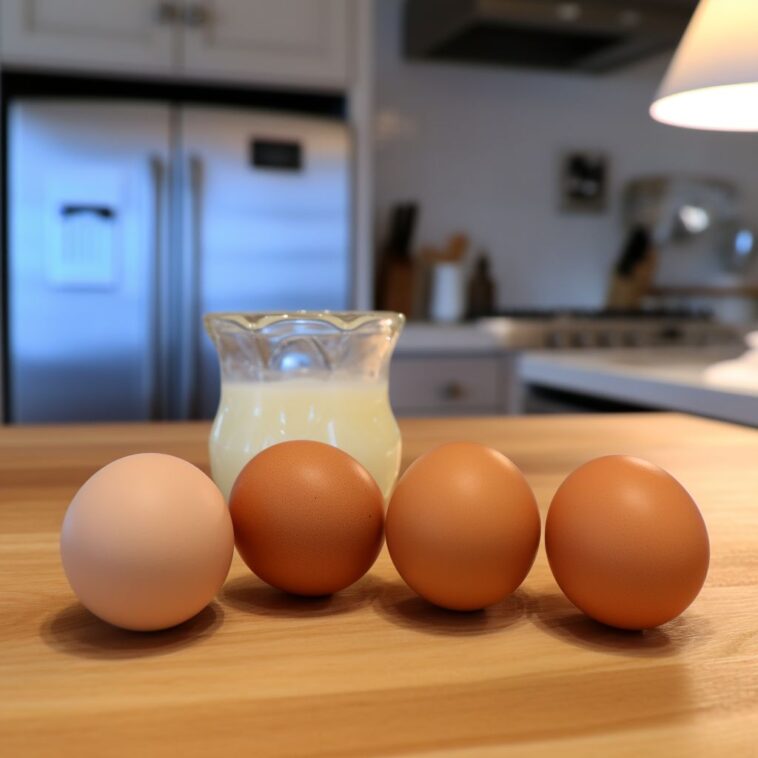Hard-boiled eggs are a convenient and protein-packed snack. When properly stored in the refrigerator, they can last for up to one week. It’s crucial to peel and store hard-boiled eggs in an airtight container or a resealable plastic bag to prevent them from drying out or absorbing other odors.
Cooked Eggs:
Cooked eggs, such as scrambled eggs or omelets, have a shorter shelf life than raw eggs. They can last in the refrigerator for about 3-4 days when stored in an airtight container. To maximize their freshness, let cooked eggs cool to room temperature before refrigerating them.
Liquid Eggs:
Liquid eggs, which are often sold in cartons, are a convenient choice for those who want to skip the cracking and whisking of eggs. Unopened liquid egg products can last in the fridge for up to one week past the “sell by” date printed on the carton. Once opened, they should be used within two days.
Egg Substitutes:
Egg substitutes, like those used in baking, can last longer in the refrigerator compared to regular eggs. They can typically be stored for up to 10-14 days if kept well sealed and refrigerated at the recommended temperature.
It’s important to note that eggs should always be refrigerated at or below 40°F (4.4°C). Refrigeration helps slow down the growth of bacteria, reducing the risk of foodborne illnesses like Salmonella. Additionally, you should never leave eggs or egg-based dishes out at room temperature for extended periods, especially in warm weather, as this can promote bacterial growth.
To determine whether an egg is still safe to eat, you can perform the “float test.” Fill a bowl with water and gently place the egg inside. Fresh eggs will sink and lay flat on the bottom, while older eggs will stand upright or float due to the increased air pocket inside. If the egg floats, it’s best to discard it.
In conclusion, the shelf life of eggs in the fridge varies depending on their form, with raw eggs having the longest lifespan. Proper storage and handling practices are essential for ensuring that your eggs remain safe and fresh for as long as possible. By following these guidelines, you can enjoy the many culinary delights that eggs have to offer without worrying about their freshness.
